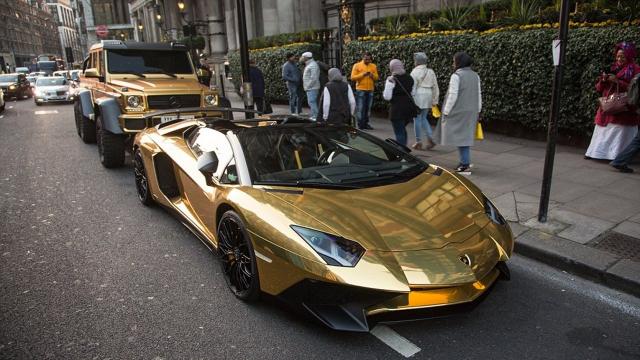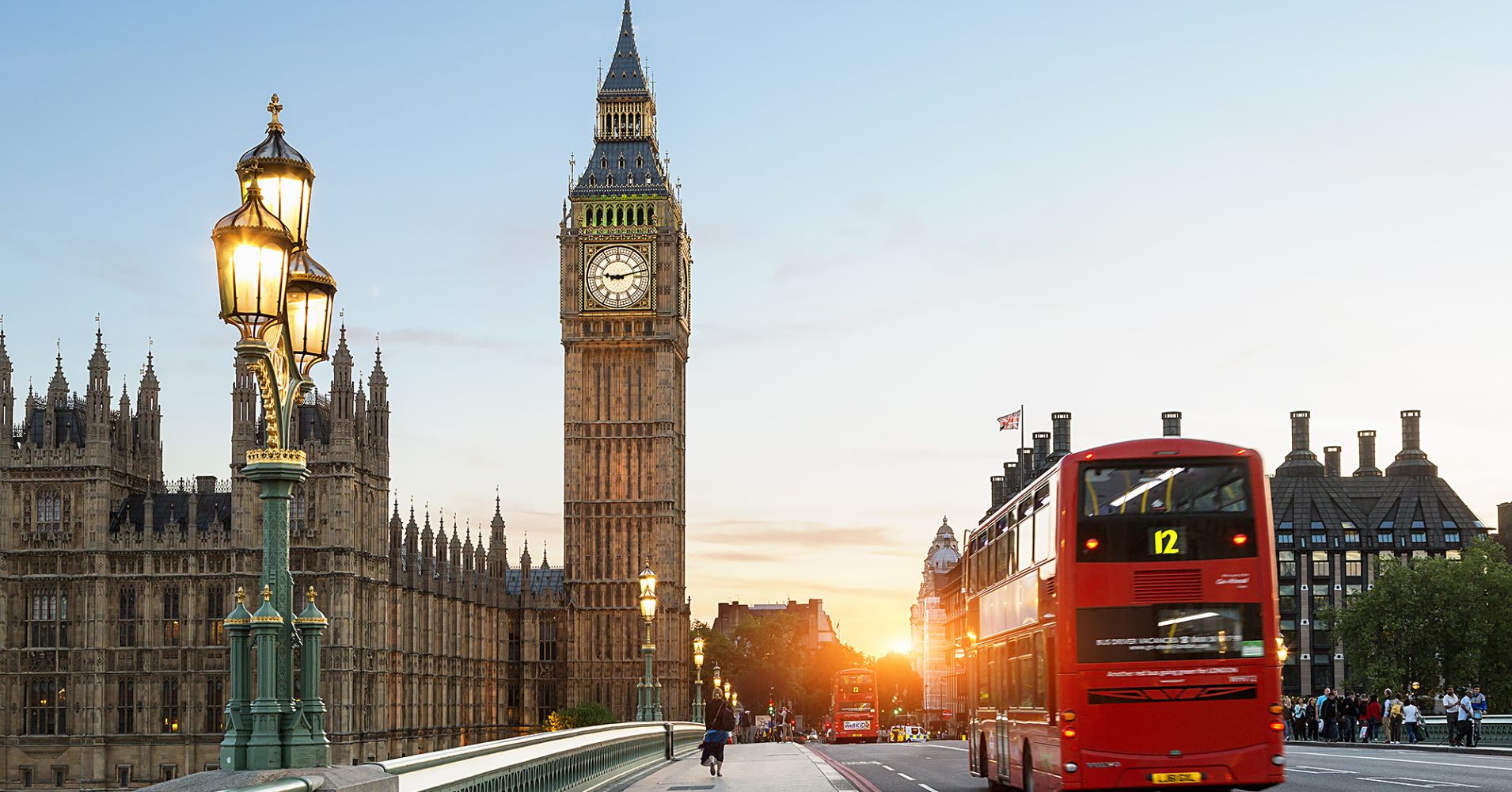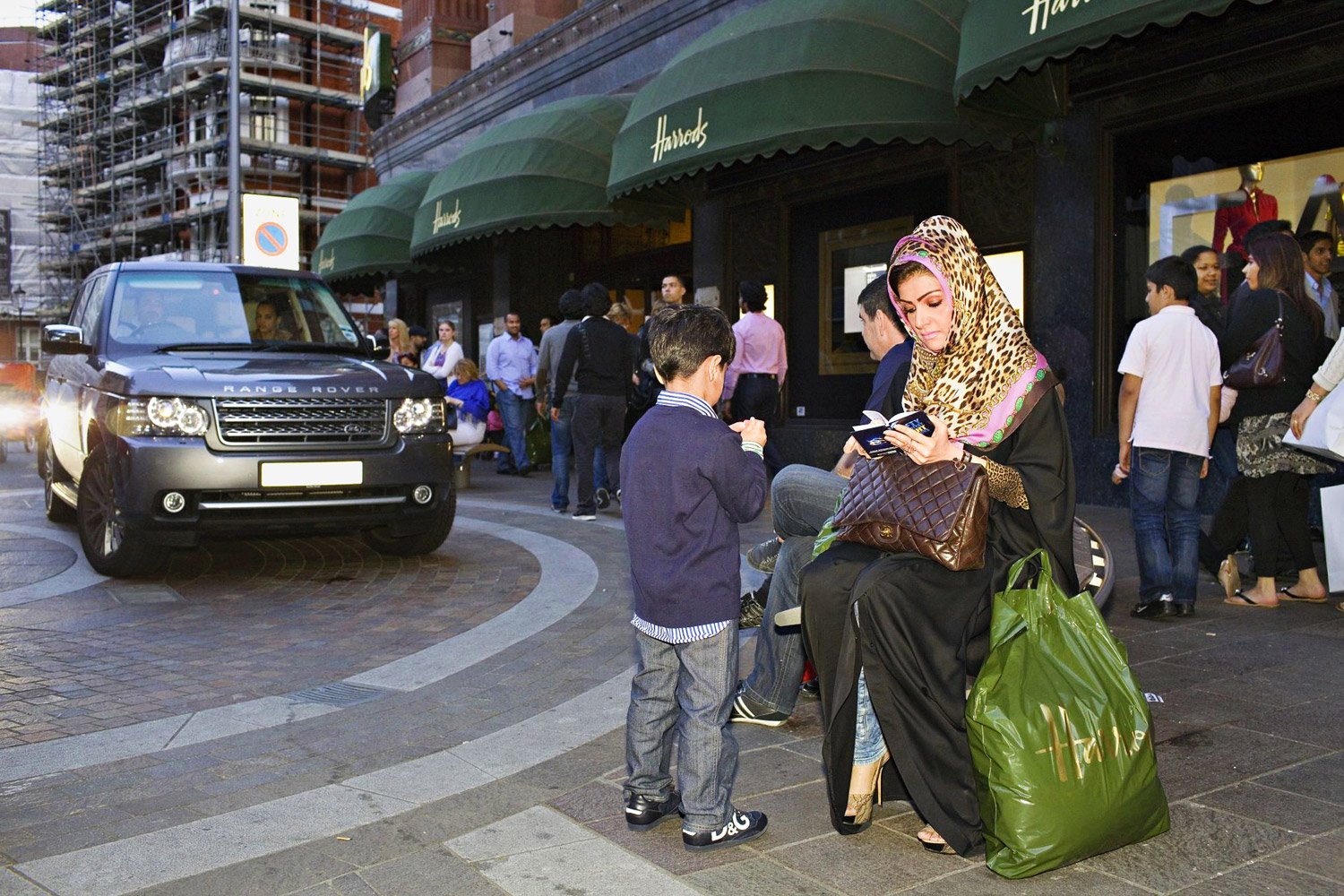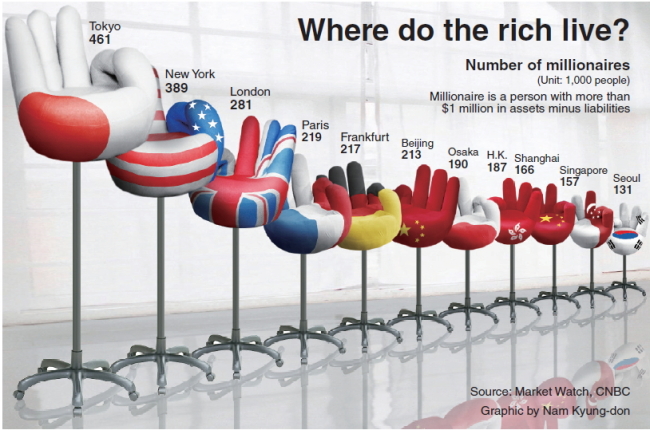
London is now home to more than 4,500 multimillionaires: people defined as having net assets of at least $30 million. This is the highest number of super wealthy citizens in any capital on Earth, so it's little surprise that London is now hailed as the richest region in Northern Europe.
But meanwhile, a recent report shows that the U.K. is also home to nine of the 10 poorest regions in Northern Europe. Britain’s wealth inequality has been glaringly apparent for some time, but Inequality Briefing’s report, entitled "The poorest regions in the UK are the poorest in Northern Europe," highlights the acute disparity between Britain's affluent capital and the rest of the country from which it derives much of its wealth.
The data for the report, which was produced by the E.U.’s data agency Eurostat, measured GDP per head in regions across Northern Europe and found that West Wales is the poorest overall, followed by Cornwall in the South West, Durham and Tees Valley in the North of England, and Lincolnshire in the Midlands.
Further research by Inequality Briefing supports the evidence that Britain, with its gaping wealth inequality, is home to the widest gulf between the richest and poorest regions, in terms of disposable income, in the European Union.
The supplemental report, "Regional inequalities in the U.K. is the worst in Western Europe," shows the disposable household income of the richest and poorest regions in Western European countries. It illustrates that the gaps in disposable income between London and the West Midlands, the poorest region in Britain in terms of disposable income, are the widest in the UK and any other country in Western Europe.
So what, exactly, is contributing to this burgeoning wealth inequality in Britain, and can it be fixed?
Austerity as a Driver for Extreme Inequality
For one, the Conservative government’s ongoing austerity program is taking its toll on the nation’s cavernous wealth gap. For example, child poverty has increased for three consecutive years and is now at its highest level since 2010. By 2021, once the Tories’ proposed welfare cuts have been fully implemented, an estimated 1.5 million additional children will be pushed into poverty.
The social costs of austerity are becoming painfully visible with crime, homelessness and overburdened public infrastructure on rise. Inequality is also widening the gap between those who own property and those who do not, as property ownership has dropped to 63.5 percent – the lowest level since 1987 and the fourth lowest in the E.U.
As the New Statesman reports: “The Conservatives are struggling to sell capitalism to voters with no capital.”
The issue of crippling wealth inequality was raised by Labour Party leader Jeremy Corbyn at the Labour Live festival, which took place earlier this month. Corbyn called on festival goers to unite to tackle the crisis, and in a rousing speech he criticized the Tory government’s elite stance, stating:
“I look in the House of Commons, across the aisle, at a party of the rich, by the rich, for the rich and funded by the rich and I see a party over there that’s divided, incapable of negotiating and incapable of governing.”
Extreme Wealth and Social Divisions in London
Despite being considered the richest region in Northern Europe, London itself shows a striking divide between rich and poor. As Inequality Briefing notes, the high incomes of some households in London “give a very high average that obscures the considerable poverty in the city.”
This month marks the one year anniversary of the devastating fire that swept through Grenfell Tower in West London, killing 72 people. The Grenfell disaster, which took place in London’s richest borough, revealed the depth of London’s wealth and social divide.
Kensington and Chelsea is the wealthiest local authority in Britain with an average income tax bill of £51,000 per taxpayer in 2014-15. The average terrace house there in 2016 sold for £4.3 million. Yet the carcass of this social housing block sits in one of the most deprived areas in England. Data shows that the vicinity of the tower was in the top 10 percent of most deprived areas in England in 2015.
The 24-story Grenfell Tower block was built as public housing flats. The rapid spreading of the fire that broke out on the fourth floor has been pinned on the building’s exterior cladding, which was, as we have now learned, a death trap. The appalling destruction of the social housing block in an inner London borough as rich as Kensington and Chelsea poignantly demonstrates how, as Lynsey Hanley, author of "Estates: An Intimate History," writes: “The privileged can buy their safety – high-rise dwellers and the poor are condemned to second-class status.”
A year on from the tragedy, the government's sham handling of the fire shows how the poor continue to pay the price for mistakes of the affluent and powerful. Prime Minister Theresa May recently announced that the £400 million fund to pay for replacing combustible cladding on around 158 social housing blocks across the U.K. will come out of the Affordable Homes Programme, meaning that fewer of the affordable homes the country desperately needs will be built.
Labour MP Emma Dent Coad won the 2017 election for the Kensington and Chelsea constituency by a mere 20 votes. During the election, Dent Coad campaigned against gentrification in London and has railed against the poor social housing condition in the borough for decades. The MP believes she won the election for Labour for the first time in the constituency’s history because people are tired of the way the council treats its poorest residents.
Talking to The Guardian, Dent Coad said, “We have a very rich council which spent £26 million repaving Exhibition Road for tourists at the same was it was closing nurseries, pruning youth clubs, closing older people’s lunch clubs, not investing in social care. I found that absolutely sickening. We have very large reserves, of around £300 million.”
The shocking statistic that the wealthiest 10 percent of households in Britain own 45 percent of the nation’s wealth – while the least wealthy half of households own just 9 percent – is justifiably causing resentment.
Quoting lyrics from "Heartland" – a song by the iconic 1980s post-punk band The The, about inequality during Thatcher’s Britain – 47-year-old Joe, an electrician in a deprived suburb of Liverpool in the North West of England, told Occupy.com:


















